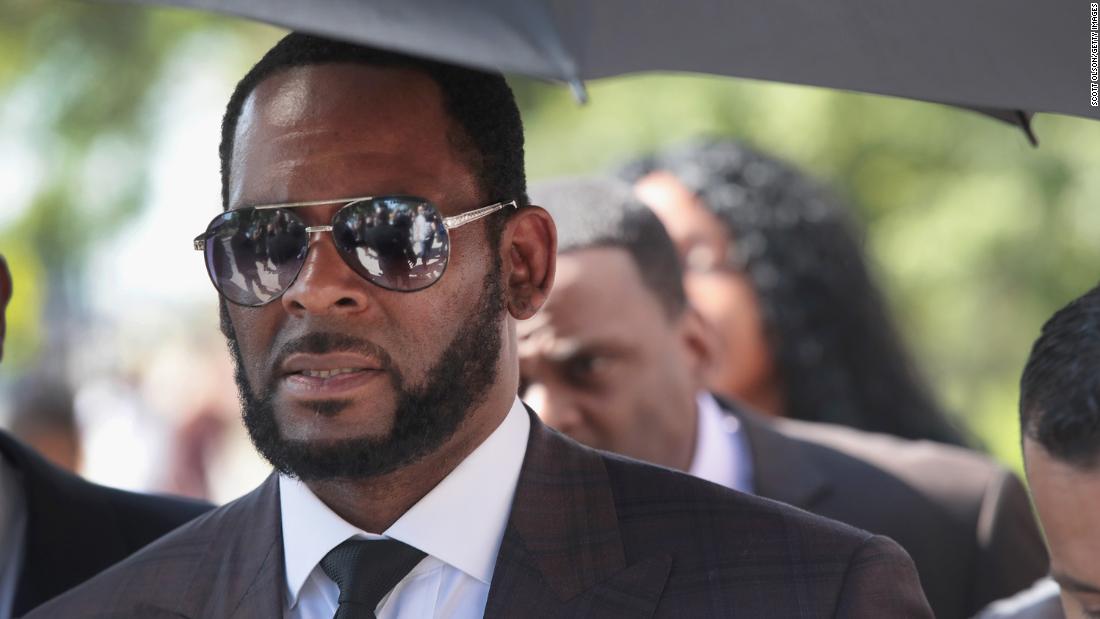No part of me wanted to see this tape to “confirm” whether it was the R&B superstar. (He denied allegations related to this tape and others). To this day, I’ve never seen it. I still remember other people joking about the sexual acts performed, selling bootlegged copies of the tape and making derisive comments about the then-unknown girl. It astonished me how many people I knew were comfortable watching a tape that, in my view, featured t
he rape of a teenage girl.
Too many people treated her as though she wasn’t a person who warranted our care or concern. She was maligned as “
fass,” deemed
hypersexual and
adultified, implying she didn’t need the same support, care or protection afforded to White children and teenagers. She was the butt of jokes. The term “
golden showers” entered popular parlance at her expense. She was a punchline for those more interested in making fun of R. Kelly for his “
sexual proclivities,” than pondering whether R. Kelly was likely a sexual predator.
It’s quite a feat for a person to be both hypervisible and invisible, and yet it is often the lived experience for Black girls and women. For example, Black girls are hypervisible to K-12 teachers, administrators and in-school police officers when they are cited disproportionately for
school dress code violations or when being deemed unruly in the classroom. The same Black girls are rendered invisible in school by disproportionate rates of
suspension and expulsion.
The Black women who testified against Kelly
in a 2008 child pornography trial (he was found not guilty)
were villainized by his defense team for being too sexual. As a survivor of sexual violence myself, I know the lives of those victimized by Kelly have been changed forever, whether they came forward or not.
But I truly believed that because he was famous and his accusers were primarily poor and working-class Black girls and women, he would escape accountability forever. I was wrong.
After two decades of organizing, the unflinching reporting of journalists such as
Jim DeRogatis, a
#MuteRKelly social media campaign, and a
heartrending docuseries, Robert Kelly is finally being legally identified as a sexual predator.
I do not wish to minimize the significance of this moment. And yet, the fact that it took this much effort and dozens of allegations — many of which eerily mirrored each other — gives me little hope that this trial and conviction will significantly change how we as a society treat Black girls and women who are sexually violated.
Despite the tremendous work of
anti-sexual violence organizers,
advocates and
activists who’ve been in the trenches demanding a semblance of recognition for the specific plight of Black women and girls, the needle on how we handle sexual violence allegations is moving at a glacial pace.
Black women and girls who come forward about sexual violence still face a nearly impossible uphill battle. This battle can be further complicated by the
celebrity and prominence of alleged perpetrators. Ask
Drew Dixon or
Rachelle Jenks about what’s at stake when a Black woman accuses a widely beloved person of sexual violence. Then ask them whether they feel believed or supported by the communities they consider home.
At this very moment, you can
still stream R. Kelly’s music on Spotify alongside 4.9 million monthly listeners. And while Kelly may have lost widespread public support, he had enablers along the way — ranging
from major record label executives to
former Chicago police officers (characterizations those people in question have denied). There are still people who believe that R. Kelly is not guilty of any wrongdoing. During the trial, the defense team
maligned his accusers as manipulative, lascivious and fame-seeking. That characterization resonated with those hell-bent on believing the best about Kelly and the worst about his accusers.
This verdict finally confirmed what some of us railed against for years, what many enabled and what others suspected but chose to ignore. While I will never discount what resonates as “justice” to those who survived R. Kelly, it incenses me that it took nearly three decades’ worth of allegations for the criminal legal system to offer some semblance of accountability for the harm this man caused. The reality is that for Black female victims of sexual violence, the criminal legal system will often fail them, as may their communities. If anything, this trial confirmed the steepness of the climb.
This case doesn’t change the climate in which
almost half of Black girls experience some form of sexual misconduct before they turn 18. Sadly, I suspect we are exactly where we were before the trial commenced regarding how we handle Black female victims of sexual violence. The absence of care and warmth prevail.
Even though the verdict doesn’t make me optimistic about where we are in the fight against sexual violence, the organizers who have been doing this important and difficult work do. They build upon a tremendous legacy of Black women such as
Frances Thompson,
Celia,
Ida B. Wells,
Betty Jean Owens,
Rosa Parks,
Recy Taylor and
Jo Ann Robinson. Contemporary Black anti-sexual violence activists and organizers know that the struggle to end sexual violence against Black women and girls necessitates a total reckoning with the devastating combined effects of patriarchy, anti-Blackness, sexism and
misogynoir.
So, while this verdict is not a turning point, it can be a galvanizing moment for those who want to join the fight to end sexual violence against Black women and girls. The first step for many of those new to this fight is coming to grips with the ways we collectively enabled sexual predation. We must commit to doing better by being honest about all the ways we fail Black girls and women.
![]()


